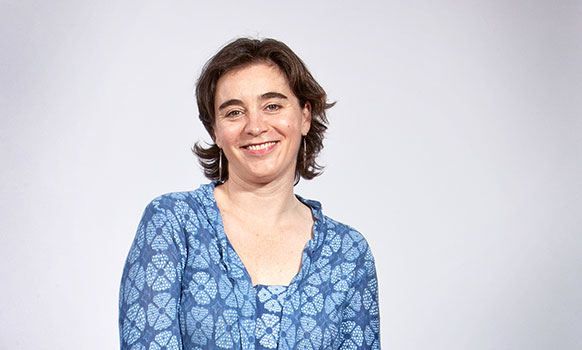
IRIS login | Reed College home Volume 93, No. 4: December 2014
Life Beyond Reed (continued)

Kinari Webb ’95
Founder, Health In Harmony, Borneo, Indonesia
Kinari Webb trekked through the swamps of Borneo to study orangutans—only to discover that she was really more interested in helping people. After Reed she went to med school at Yale and returned to the rain forest to start Health in Harmony, a nonprofit dedicated to the notion that human and environmental health are essentially connected. HIH supports a medical and dental clinic and promotes conservation of the rain forest. The organization has grown to 101 staff, impacted the lives of countless people, and protected thousands of acres from deforestation. Her pace slowed recently after she was stung by a venomous box jellyfish in the South China Sea, but she won't stop—she's now working on a new health center.
Thesis: Regeneration of Two Primate-Dispersed Rain Forest Trees, Alangium Javanicum and Baccaurea Bracteata. Advisers: Prof. Steven Black [bio 1989–2012] and Prof. Keith Karoly [bio 1994–]
What was your career ambition at Reed? I thought I would be a primatologist like Dian Fossey. After my junior year, I took a year off to research orangutans in Borneo. And I learned something very important. Orangutans are boring. They are mostly solitary, sitting in trees and pretty much doing nothing for hours and hours. I realized it takes a certain type of person to do this research. After a year, I said, "Nope, not going to do this."
Then what? During that year in Indonesia I visited a hospital, and thought, "Wow, I could be a doctor." I could see how profoundly blessed—and lucky—I had been to have been born in the United States. I realized I wanted to come back to Indonesia and make a difference.
What did Reed teach you? Reed helped make me an integrated thinker. And that is so important in my work today. It’s about thinking in systems—the history, the politics, the linguistics.
How did you like med school? Med school was tough, but I did very well. I knew what I wanted to do. I got a lot of flak for wanting to do international medicine. People couldn’t understand why I wasn’t pursuing the most prestigious specialties and residencies. I started worrying that maybe I was making a stupid mistake.
What kept you pursuing your dream? I talk about it in terms of stepping off a cliff. At first you don’t know what’s going to happen, but as you move forward, each time a step materializes out of the mist. That’s one piece of advice I’d give young people starting out. If you follow your passion, things will work out.
What do you appreciate most about living in the rain forest? Imagine a cathedral of trees towering sixty meters up, and you have this beautiful sun, and the gibbons are singing—they sing a beautiful song.
What’s the first thing you like to do when you get back the States? This is a very conservative community—there’s no dancing. So one of my favorite things is to go out to a club and dance.

LATEST COMMENTS
steve-jobs-1976 I knew Steve Jobs when he was on the second floor of Quincy. (Fall...
Utnapishtim - 2 weeks ago
Prof. Mason Drukman [political science 1964–70] This is gold, pure gold. God bless, Prof. Drukman.
puredog - 1 month ago
virginia-davis-1965 Such a good friend & compatriot in the day of Satyricon...
czarchasm - 4 months ago
John Peara Baba 1990 John died of a broken heart from losing his mom and then his...
kodachrome - 7 months ago
Carol Sawyer 1962 Who wrote this obit? I'm writing something about Carol Sawyer...
MsLaurie Pepper - 8 months ago
William W. Wissman MAT 1969 ...and THREE sisters. Sabra, the oldest, Mary, the middle, and...
riclf - 10 months ago